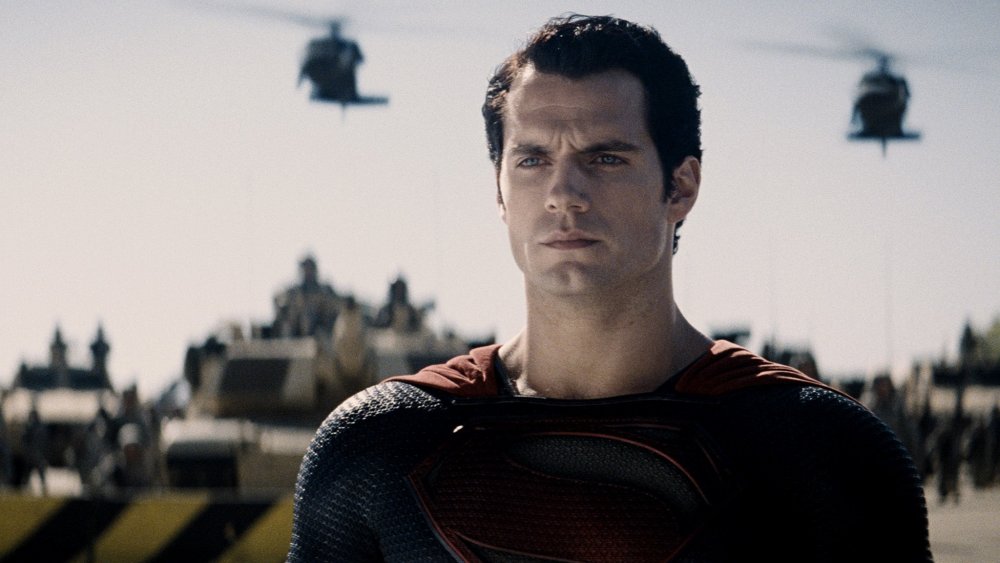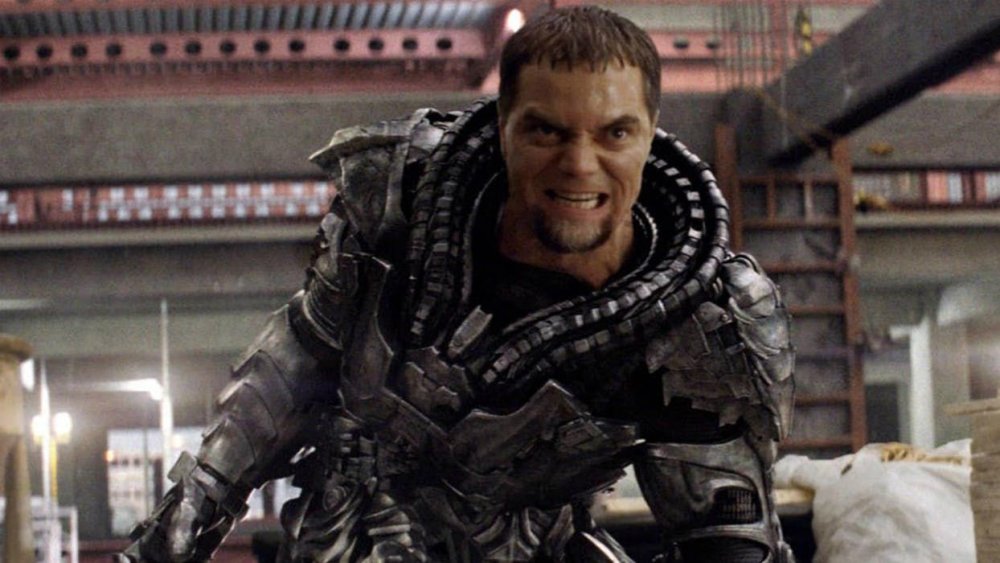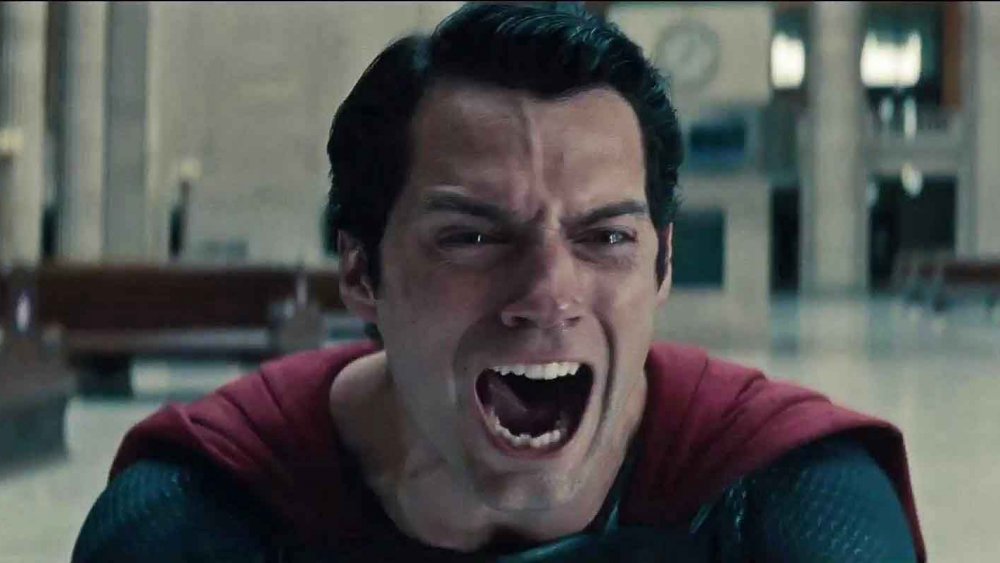We Finally Understand Why Superman Killed Zod In Man Of Steel
With 2013's Man of Steel, screenwriter David Goyer and director Zack Snyder presented a vision of Superman that laid the groundwork for the entire DC Extended Universe. Henry Cavill continued playing Kal-El in Batman v Superman: Dawn of Justice and Justice League, and when you ask the actor these days, he keeps pretty tight-lipped but still seems very game about putting on the cape and tights one more time.
To this day, though, Man of Steel is often seen as living in the shadow of a Superman rule broken: do not kill. Fans still debate the film's controversial decision to have Superman snap the neck of Kryptonian baddie General Zod (Michael Shannon) during the climactic battle.
For Comic-Con@Home, David Goyer (who collaborated on Man of Steel's story with producer Christopher Nolan) sat down with Jeff Goldsmith of Backstory Magazine to have a real conversation about what the Plan of Steel, if you will, was for Cavill's Superman, and whether he felt it was a success.
Zod puts Superman in a stalemate
From early on, Goyer and Nolan set about to take a page from the success of Batman Begins' more realistic tone as they scripted Man of Steel. Comparing the two films, Goyer said the goal was "to tell the story of Man of Steel in a fairly realistic way and to try to think about what would happen to the world if a character like that emerged. The entire premise of the movie was that if a character like this emerged from another world who had these kinds of powers, it would be the biggest thing that ever happened in human history."
Goyer compared the fight between Zod and Superman as being "almost like 9/11." To set up an impossible choice, Goyer said he needed to write the fight between these two super-powered men as a stalemate for a young superhero. Speaking of the fight, Goyer pointed out that Superman had "just flown for the first time days before that," adding, "he's not aware of the extent of his powers at all."
"He's finding somebody who's said, 'I won't stop,' who's said, 'You can't put me in a prison, I won't ever stop,'" said Goyer. And all that brings us to Superman being in a position where killing may seem like the only option. That's why the writer feels Superman must make the decision to kill, but that doesn't mean there are no regrets or that there wasn't a Plan B.
Man of Steel's deleted and alternate scenes also address Zod's death
Justifying Superman killing General Zod is not the same as saying its a perfect narrative. "I absolutely understand a lot people had problems with it," Goyer acknowledged. He went on to say that it wasn't a simple decision, revealing that "we talked about whether or not people would accept it, and the editorial staff at DC had accepted it."
Goyer conceded, that "it doesn't mean it wasn't a mistake." However, he ultimately defended taking a "big swing," saying, "if you sit there and you say, 'I don't wanna take any risk. I'm worried I might offend a portion of the audience,' I don't think that's a particularly healthy way to try to make a film or a television show."
There is a scene from the script that went unshot, designed to foreshadow Zod's death. According to Goyer, "Jonathan takes young Clark hunting and they kill a deer, and young Clark is just gutted by the act and Jonathan says, 'It's a powerful thing to take a life, even if you're forced to take a life.'"
Moreover, there was even an alternate ending where "there was one of those sort of cryopods on the ship that ends up becoming the Fortress that he's able to put Zod back into and then throw out into space." Goyer said that "some people would've been happier with that," but "it felt like a cop out for the story that we were telling."
In the end, Goyer, Nolan, and Snyder (along with DC editorial) felt the film justified itself as an "Elseworlds story," a tradition in DC Comics of telling out-of-continuity "what-if" tales. "That was the intention," Goyer explained. "He was in this terrible position and then afterwards he vowed that he could never do it again. It didn't come out of anger — he was forced into it — but that was the one [death]."


